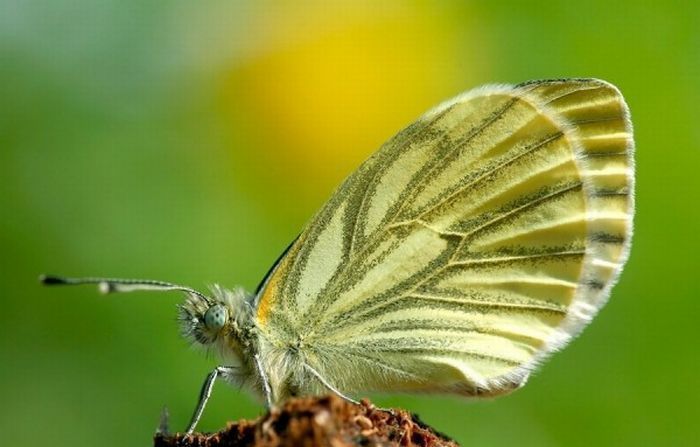|
|
Macro Shooting By Roeselien Raimond
|
Limited depth of field is an important consideration in macro photography. This makes it essential to focus critically on the most important part of the subject, as elements that are even a millimetre closer or farther from the focal plane might be noticeably blurred. Due to this, the use of a microscope stage is highly recommended for precise focus with large magnification such as photographing skin cells. Alternatively, more shots of the same subject can be made with slightly different focusing lengths and joined afterwards with specialized focus stacking software which picks out the sharpest parts of every image, artificially increasing depth of field.
Compact digital cameras and small-sensor bridge cameras have an incidental advantage in macro photography due to their inherently deeper depth of field. For instance, some popular bridge cameras produce the equivalent magnification of a 420 mm lens on 35-mm format but only use a lens of actual focal length 89 mm (1/1.8″-type CCD) or 72 mm (1/2.5″-type CCD). Since depth of field appears to decrease with the actual focal length of the lens, not the equivalent focal length, these bridge cameras can achieve the magnification of a 420 mm lens with the greater depth of field of a much shorter lens. High-quality auxiliary close-up lenses can be used to achieve the needed close focus; they function identically to reading glasses. This effect makes it possible to achieve very high quality macrophotographs with relatively inexpensive equipment, since auxiliary closeup lenses are cheaper than dedicated SLR macro lenses.
• Lighting
The problem of sufficiently and evenly lighting the subject can be difficult to overcome. Some cameras can focus on subjects so close that they touch the front of the lens. It is impossible to place a light between the camera and a subject that close, making extreme close-up photography impractical. A normal-focal-length macro lens (50 mm on a 35 mm camera) can focus so close that lighting remains difficult. To avoid this problem, many photographers use telephoto macro lenses, typically with focal lengths from about 100 to 200 mm. These are popular as they permit sufficient distance for lighting between the camera and the subject.
|
|









